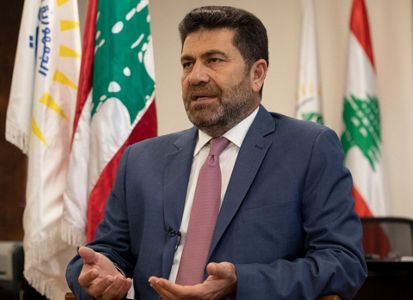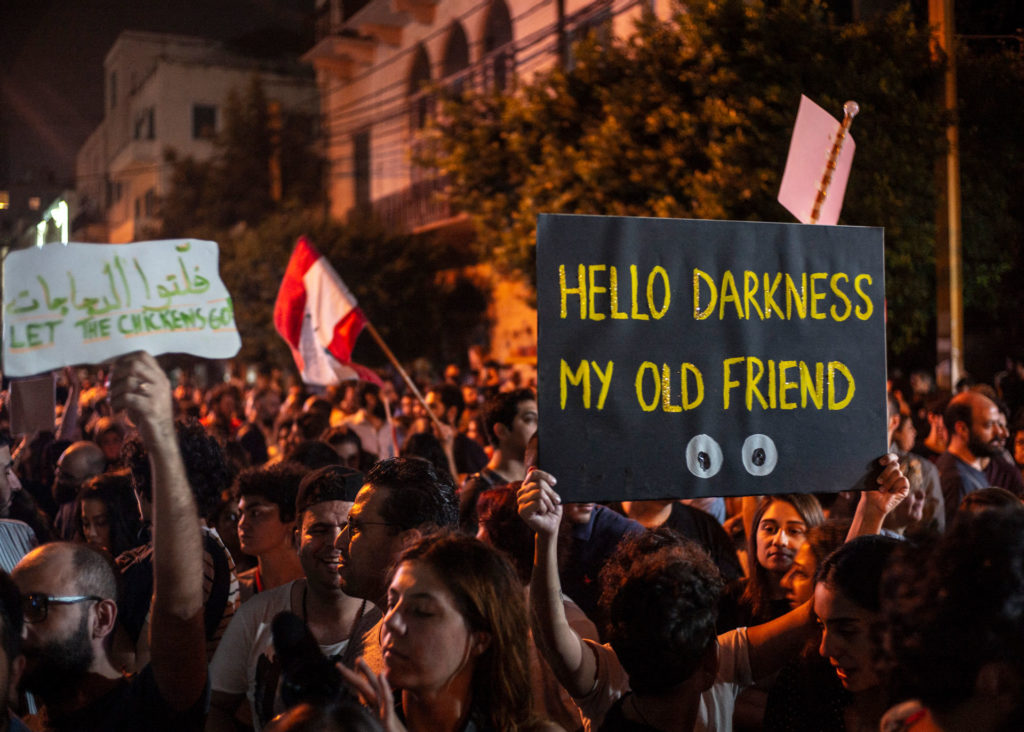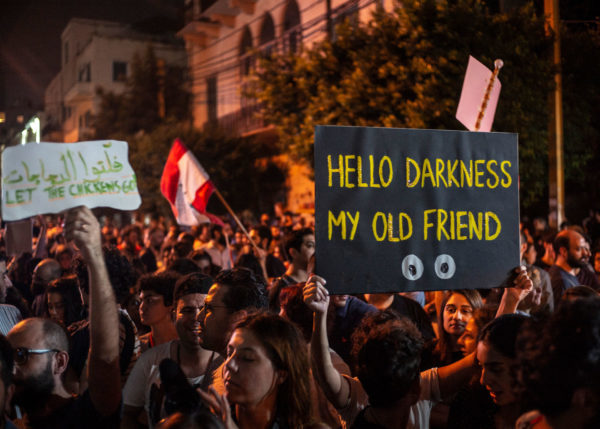BEIRUT — Lebanon’s worsening economic crisis, which culminated with the tiny nation defaulting on its debt this year, is making it increasingly difficult to attract investors for the country’s ailing electricity sector, the energy minister said Thursday.

This in turn makes it harder to reform the state-run sector as required by the International Monetary Fund and also for international donors to provide Lebanon with financial assistance, Raymond Ghajar said. Still, he said the government is working on reforming the highly subsidized sector and has made important steps in that direction recently.
Ghajar spoke to The Associated Press Thursday amid an electricity crisis that has plunged much of the country in darkness, adding to the gloom of a deepening economic and financial crisis in the country.
The cuts, stretching in some cases to 20 hours a day, have led generator providers to shut down their machines for several hours a day to ration existing fuel. As a result, traffic lights in Beirut have been turned off and hospitals have struggled to make sure their surgeries and other work can continue without interruption.
Blackouts have been a fixture of life in this Mediterranean country since the 1975-1990 civil war, with successive governments failing to agree on a permanent solution for the chronic electricity failures, largely because of profiteering, endemic corruption and mismanagement.

The energy sector has been a huge drain on state coffers for decades.
The electricity company makes annual losses of up to $2 billion, which have cost the state more than $40 billion over the past decades. Reforming the sector has been a key demand of international donors, the World Bank and the International Monetary Fund.
Ghajar said some steps toward reform have been taken, such as last week’s naming of a new board of directors for Electricite du Liban, or EDL, the state monopoly. An electricity regulatory authority should be appointed before the end of the year, he said, though he did not mention any concrete steps for how the government plans to overhaul the sector, including whether it plans to improve bill collection.
“Lebanon can no longer afford to subsidize its people,” said Ghajar, a Lebanese-Canadian, referring to consumer prices that have not changed since 1996. “This is an industrial service that needs to be paid for fairly for everybody.”
Lebanese people, however, already pay for generators that provide backup power through the daily outages, and electricity prices cannot be increased before the state is able to provide round-the-clock electricity.
Ghajar painted a grim picture of Lebanon’s current trajectory but said that a deal with the IMF would help regain some confidence that might lure investors once again.
The government had turned to power plant manufacturers, including General Electric and Siemens for building power plants. China has also expressed interest. But Ghajar said the country’s myriad problems make it difficult for the government to comply with the conditions that would be required by private investors.
“After the default, this became practically impossible,” said Ghajar referring to Lebanon’s first ever default in March to pay back its debt that stood at $90 billion — nearly 170% of its GDP. Almost half of the country’s massive debt was caused by the electricity sector.
“You know, nobody, in my opinion, is going to come and build you a $500 million power plant and say, I don’t want anything from you, just sign here,” Ghajar said.
He blamed wide power cuts over the past month on two faulty fuel shipments involving the Algerian state energy firm Sonatrach, which forced Lebanon to use — and ration — the reserves it has.
Ghajar said he expects the power cuts to start easing soon, with more fuel shipments on their way.
(The Associated Press)


Leave a Reply
You must be logged in to post a comment.